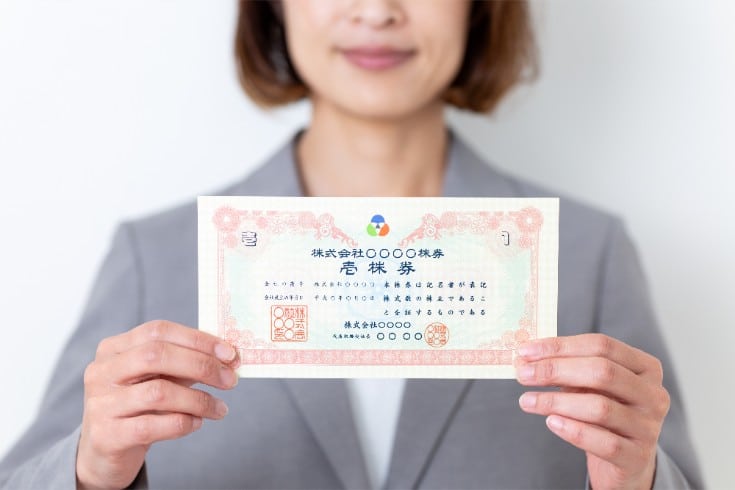Japanese Premiums and Representations Act (Jōhyōhō) Explained: An Easy-to-Understand Guide with Examples of Violations and Penalties

When the presentation differs from reality or the prizes are too luxurious, consumers may end up purchasing products they would not normally buy. The Japanese Premiums and Representations Act is a law designed to prevent such occurrences and ensure consumers can make appropriate choices regarding products. The content of the Japanese Premiums and Representations Act is complex and difficult to understand, and many may feel anxious about whether their company’s advertisements or services violate this law.
Even without the intention to violate, cases of infringement due to a lack of knowledge about the Japanese Premiums and Representations Act can occur. To avoid violating the law, it is essential to understand the law and related guidelines.
This article provides an easy-to-understand explanation of the Japanese Premiums and Representations Act, the penalties for violations, and examples of infringements. By reading this article, gain knowledge about the Japanese Premiums and Representations Act and avoid the risk of violation.
What is the Japanese Premiums and Representations Act (Premiums Act)?

The official name of the Japanese Premiums and Representations Act is the “Act against Unjustifiable Premiums and Misleading Representations,” also known as the Premiums Act. The purpose of this act is to protect the interests of general consumers by regulating “false representations” and “the provision of excessive premiums” that prevent consumers from making autonomous and rational choices regarding products and services.
“Representations” refer to advertisements or indications towards consumers about the quality, standards, price, etc., of products or services. “Premiums” refer to goods or money provided in conjunction with the sale of a product as a means of attracting customers.
The Japanese Premiums and Representations Act prohibits the following two actions:
- Restrictions and prohibition on the provision of excessive premiums
- Prohibition of unfair representations in advertisements, etc.
Source: Act against Unjustifiable Premiums and Misleading Representations[ja]
Restrictions and Prohibition on the Provision of Excessive Premiums
The Japanese Premiums and Representations Act prohibits the provision of luxurious bonuses or premiums, setting limits on the total and maximum amount of premiums. For example, if the premium is too luxurious, there is a risk that consumers might reach for products they would not normally purchase.
The act restricts and prohibits the provision of premiums to prevent unhealthy competition through premiums and to protect the interests of general consumers.
Prohibition of Unfair Representations in Advertisements, etc.
When purchasing products, consumers place importance on “price,” “quality,” “standards,” etc., which are crucial factors in selecting products or services. If the price or content of a product is misrepresented, consumers will not be able to make the correct choice.
To avoid such situations, the Japanese Premiums and Representations Act prohibits the following types of representations:
- Unfair representations regarding the quality, standards, or other aspects of products or services (Article 5, Paragraph 1)
- Unfair representations regarding the price or other aspects of products or services (Article 5, Paragraph 2)
- Other representations that could mislead general consumers, as designated by the Prime Minister (Article 5, Paragraph 3)
Handling of Prizes Subject to the Japanese Premiums and Representations Act

There are two types of sweepstakes: “Open Sweepstakes” and “Closed Sweepstakes.” Open Sweepstakes do not require the purchase of goods or services or a visit to a store for entry, allowing anyone to participate.
Since anyone can enter Open Sweepstakes without any financial transaction occurring, the Japanese Premiums and Representations Act does not apply. Closed Sweepstakes, on the other hand, require the purchase of goods or services as a condition for entry, and thus, are subject to the Japanese Premiums and Representations Act.
There are three types of Closed Sweepstakes:
- General Sweepstakes: Offering prizes through lotteries or draws to users of goods or services, thereby distinguishing winners from losers.
- Joint Sweepstakes: Multiple businesses collaborate to offer prizes to users of goods or services.
- Guaranteed Prizes: Providing prizes to all customers or visitors who use goods or services.
Regulations Prohibiting Unfair Representations under the Japanese Premiums and Representations Act (Jōhyōhō)

The Japanese Premiums and Representations Act prohibits representations that may mislead the general consumer into believing that a product or service is superior or more advantageous than it actually is. The following four types of representations are prohibited:
- Misleading representations of quality
- Misleading representations of advantage
- False advertising regulations
- Other potentially misleading representations
Here, we will explain the details of each type.
Misleading Superiority Representation
Misleading superiority representations, which are prohibited under the Japanese Act against Unjustifiable Premiums and Misleading Representations, are classified into the following two categories (Article 5, Item 1):
- Representations that suggest the product or service is significantly superior to its actual quality
- Representations that falsely suggest the product or service is significantly superior to those of competing businesses, contrary to the facts
Source: Consumer Affairs Agency | What is Misleading Superiority Representation?[ja]
Specifically, this includes cases where the quality or standards of a product or service are represented as being superior to what they actually are, or where false representations are made suggesting superiority over a competitor’s product or service, despite being nearly identical. Representations in this context are not limited to quality or standards but also include “place of origin,” “manufacturing method,” “expiration date,” and more.
Examples of misleading superiority representation include:
- Advertising and selling meat as being from a domestic brand-name cow, when in fact it was non-brand domestic beef
- Labeling a product as containing 20% cashmere, despite it actually containing 0%
- Claiming that the nutritional content was double that of competitors’ products, when in reality, it contained the same amount
Misleading Advantageous Representation
Misleading advantageous representations prohibited under the Japanese Premiums and Representations Act are as follows (Article 5, Paragraph 2):
- Representations that are significantly more advantageous to the counterparty than the actual item, leading to misidentification by the general consumer
- Representations that are significantly more advantageous to the counterparty than those related to competing businesses, leading to misidentification by the general consumer
Reference: Consumer Affairs Agency | What is Misleading Advantageous Representation?[ja]
Specifically, this includes representations about the price of products or services, such as making the price appear cheaper, that make them seem more “beneficial (advantageous)” than the actual item or those of other companies. Besides price, representations about “quantity,” “warranty period,” “payment terms,” etc., are also mentioned.
Additionally, displaying a higher price than the actual selling price as the “regular price,” known as “dual pricing,” also falls under misleading advantageous representation.
Examples of misleading advantageous representations include:
- Advertised as “Regular price 20,000 yen, now on sale for 10,000 yen,” but in reality, it was always sold for 10,000 yen
- Despite being advertised as “10,000 yen off for a limited time,” the same price was offered even outside the stated period
- Advertised as “the lowest price in the area,” but in reality, it was more expensive than nearby stores
For those who want to learn more about dual pricing, please refer to the following article:
Related article: What is Dual Pricing? Explaining Points to Avoid Violating the Premiums and Representations Act and Penalties[ja]
Regulation of False Advertising
Regulation of false advertising is established to effectively regulate misleading representations of superiority. When it is necessary to determine whether a representation is misleading, the Consumer Affairs Agency may require the submission of documents that serve as the basis for the representation, within a specified period.
The submission period is typically 15 days. If the documents are not submitted within this period or are deemed insufficient as a basis, the representation will be considered unfair by an order of measures (Article 7, Paragraph 2).
Furthermore, in the order for the payment of administrative fines, the representation will be presumed unfair (Article 8, Paragraph 3).
Examples of false advertising regulation include the following:
- It was advertised that simply drinking a product would lead to weight loss, but no documents were provided to substantiate this claim.
- It was claimed that using a certain product would remove airborne viruses in a space, but the submitted documents were not deemed sufficient to justify the claim.
- It was written that ultrasonic waves could exterminate pests in the home, but the only experiments conducted were in an acrylic case, and there was no proof of effectiveness inside actual homes.
Misleading Representations That May Cause Confusion
While the Japanese Premiums and Representations Act includes provisions for misleading representations of superiority and advantage, these alone may not cover all instances of unfair advertising. To regulate misleading representations beyond those of superiority and advantage, the Japan Fair Trade Commission has designated the following seven types as “Misleading Representations That May Cause Confusion.”
- Representations regarding non-juice beverages, etc.
- Misleading representations about the country of origin of a product
- Misleading representations regarding the cost of consumer credit
- Representations related to bait advertising in real estate
- Representations related to bait advertising
- Misleading representations regarding paid nursing homes
- Representations that make it difficult for the general consumer to discern that they are made by a business
Citation: Consumer Affairs Agency | Public Notice[ja]
“Representations that make it difficult for the general consumer to discern that they are made by a business” address what is commonly known as stealth marketing and were added on October 1, 2023 (Reiwa 5).
The examples of unfair representations are as follows:
- The percentage of juice or pulp in a juice is not clearly stated (1)
- A flag of a country other than the country of origin is displayed on the product, making it difficult to identify the correct country of origin (2)
- The amount of financing costs or the representation of financing costs through repayment examples is not clearly stated (3)
- Non-existent real estate is being advertised (4)
- Despite the limited supply of a product, this fact is not explicitly stated (5)
- The brochure stated a 24-hour system, but this was not the case (6)
- Despite receiving money from a company, the product was introduced on social media without clearly stating it was an advertisement (7)
Penalties for Violating the Japanese Premiums and Representations Act (Premiums Display Act)

Violating the Japanese Premiums and Representations Act results in penalties. This section explains the details of these penalties.
Public Disclosure of Company Name etc., by Administrative Order
If there is suspicion of violating the Japanese Premiums and Representations Act, an investigation is conducted by interviewing the business operator and requesting the submission of documents. If the Consumer Affairs Agency determines that there has been a violation of the Japanese Premiums and Representations Act, it will issue an administrative order to the business operator to implement measures to prevent recurrence and to refrain from committing any further violations.
This is known as an administrative order. The main types of administrative orders include:
- Making it widely known to the general public that the company has made representations that could be mistakenly perceived as superior or advantageous
- Implementing measures to prevent recurrence and ensuring that officers and employees are fully aware of them
- Refraining from making similar representations in the future
Furthermore, the fact of unfair advertisement representations being made public on the Consumer Affairs Agency’s website could also become a target for mass media.
Having the company name and details of the violation published on a webpage or becoming a topic of discussion on television or in newspapers leaves an indelible mark. To avoid such situations, it is essential to be cautious about advertisement representations and to adhere to the Japanese Premiums and Representations Act.
Payment of Administrative Fines
If a business operator violates the provisions against superior or advantageous misrepresentations, an administrative fine will be imposed. Violations related to unfair premiums are not subject to administrative fines.
The process leading up to the payment of an administrative fine is as follows:
- The business operator is deemed to have made an unfair representation
- An investigation is conducted, and an administrative order is issued
- The business operator is given an opportunity to present their case
- If the documents are not submitted within the deadline or the representation is not recognized as fair
- An order to pay the administrative fine is issued
The method for calculating the administrative fine is as follows:
Administrative Fine = Sales amount of the product or service with the unfair representation × 3%
The maximum period for which administrative fines can be imposed is three years.
If the facts regarding the act subject to the administrative fine are voluntarily reported to the Commissioner of the Consumer Affairs Agency, the amount of the administrative fine will be reduced by half. Furthermore, if a “refund measure” is carried out in accordance with prescribed procedures for consumers, the equivalent amount of the refund will be deducted from the administrative fine.
“Refund measures” refer to providing an amount greater than 3% of the purchase price when there is a request from general consumers who have transacted the product or service subject to the administrative fine. The following cases will be exempt from administrative fines:
- If the unfair representation was made despite taking care to avoid violations
- If the administrative fine amount is less than 1.5 million yen (for products or services with sales amounting to less than 50 million yen)
If you would like to learn more about violations of the Japanese Premiums and Representations Act, please refer to the following article.
Related article: What Happens When You Violate the Japanese Premiums and Representations Act (Premiums Display Act)? Key Points to Observe Explained[ja]
Three Cases of Violations of the Japanese Premiums and Representations Act (JPR Act)

Even when you are careful not to violate the Japanese Premiums and Representations Act, it’s possible to inadvertently commit a violation. Here, we introduce three cases of violations of the JPR Act for your reference.
Misleading Superiority Representation by Kirin Beverages
Kirin Beverages’ product, “Tropicana 100% Full Fruit Sensation Melon Taste,” was found to have misleading superiority representations. The product included phrases such as “Select Musk Melon” and “100% MELON TASTE,” which could lead consumers to mistakenly believe that the majority of the ingredients were melon juice.
However, it was revealed that approximately 98% of the ingredients were actually juices from grapes, apples, and other fruits, with only about 2% of melon content. The details of the corrective order are as follows:
- Ensure thorough awareness among the general consumers that this constitutes a violation of the Japanese Prize Display Act
- Implement measures to prevent recurrence and ensure thorough awareness among executives and employees
- Avoid making similar representations in the future
Reference: Consumer Affairs Agency | Regarding the Corrective Order Based on the Japanese Prize Display Act against Kirin Beverages Co., Ltd.[ja]
Misleading Advertising by Hokkaido Direct Delivery Center
Hokkaido Direct Delivery Center Co., Ltd. has been found to have engaged in misleading advertising practices regarding the labeling of its supplied food products. The details of the violations are as follows:
- For a limited time, the products were labeled as “Regular Price: ¥4,000 incl. tax” and “Sale Price: ¥1,480 incl. tax,” suggesting that the sale price was significantly lower than the regular price, when in fact, there were no sales records at the regular price.
- The label stated that customers who made a purchase would receive a gift, but in reality, the cost of the product offered as a “gift” was included in the purchase price, and it was not free of charge.
Similar to Kirin Beverage, measures have been ordered to ensure awareness of the violation among general consumers, to prevent recurrence, and to refrain from making similar representations in the future.
Reference: Consumer Affairs Agency | Measures Based on the Japanese Premiums and Representations Act Against Hokkaido Direct Delivery Center Co., Ltd.[ja]
Bait Advertising by Sushiro
Akindo Sushiro Co., Ltd. has been found to have engaged in misleading representations related to the dishes it supplies, including “other potentially misleading representations (related to bait advertising).” The details of the violation are as follows:
- For a certain dish, it was advertised as “Available from September 8 (Wed) to September 20 (Mon/Holiday)! While supplies last!” However, despite the possibility of early sell-out, it was not sold in stores at all.
- For another dish, it was advertised as “Limited time only from November 26 (Fri), 2021 to December 12 (Sun), 2021! While supplies last!” However, it sold out quickly, and despite some stores not being prepared to offer the dish, no measures were taken to stop the advertisement.
Akindo Sushiro has also been issued an order to inform the general public of the violation, take measures to prevent recurrence, and to refrain from making similar representations in the future.
Reference: Consumer Affairs Agency | Order Based on the Japanese Prize Display Act Against Akindo Sushiro Co., Ltd.[ja]
Summary: Ensure Your Advertising is Compliant to Avoid Violating the Japanese Premiums and Representations Act (JFTC Act)

When selling products or services, advertising that includes information about prices, quality, and specifications is common. However, overly aggressive advertising aimed at attracting customers can lead to violations of the Japanese Premiums and Representations Act. Such violations can result in the issuance of corrective orders and the obligation to pay fines.
Furthermore, the facts of the violation may be published on the Consumer Affairs Agency’s website, potentially damaging the company’s reputation. However, many violations occur not out of intent to deceive but from a lack of knowledge about the Japanese Premiums and Representations Act. To avoid violations, it is advisable to have advertisements and e-commerce sites legally reviewed by attorneys with specialized knowledge.
Guidance on Measures by Our Firm
Monolith Law Office is a legal office with extensive experience in both IT, particularly the internet, and law. In recent years, violations of the Japanese Fair Trade Display Act, such as misleading advertisements on the internet, have become a significant issue, and the need for legal checks is increasingly growing. Our firm analyzes the legal risks associated with businesses that have started or are about to start, based on various legal regulations, and aims to legalize them without stopping the business as much as possible. Details are provided in the article below.
Areas of practice at Monolith Law Office: Article & LP checks for the Japanese Pharmaceuticals and Medical Devices Act, etc.[ja]
Category: General Corporate





















